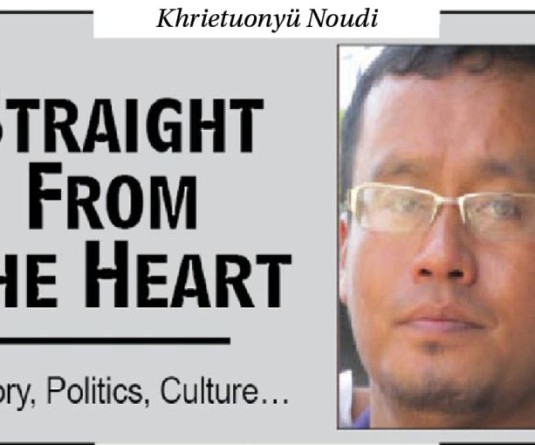.jpg)
Book review by Rupanka Bhuyan, Registrar, ICFAI University Nagaland
In his latest book, “Teach to Touch Hearts and Minds”, Col Dr VRK Prasad has crafted a remarkable and inspiring manifesto for educators, reinforcing the profound importance of their role in shaping both individual lives and the fabric of society. This book stands out not just for its content but also for its heartfelt dedication to the noble profession of teaching, reflecting Dr. Prasad's own journey as an educator and a leader.
From the outset, Dr Prasad sets a compelling tone that resonates deeply with anyone who has dedicated their life to education. His assertion that teaching is one of the noblest professions is not merely a platitude; it is a profound truth that he skillfully unfolds throughout the text. The author champions the idea that teachers are “nation builders”, tasked with the monumental responsibility of nurturing the youth who will inherit the future. This empowering narrative serves to elevate the teaching profession, instilling a sense of pride and purpose among educators that is both refreshing and necessary.
One of the most commendable aspects of this work is the author’s unwavering commitment to lifelong learning. He skillfully argues that education is a dynamic, ongoing process, emphasizing that both teachers and students must embrace this journey together. This perspective is particularly relevant in an era where rapid technological advancements and shifting societal values demand adaptability and continuous growth in the country as well as the state of Nagaland. By advocating for a culture of lifelong learning, Dr Prasad not only inspires educators to remain curious and engaged but also instills this ethos in their students, preparing them for an unpredictable future.
Dr. Prasad’s exploration of the ancient Indian education system is a highlight of the book. His ability to connect historical wisdom with contemporary practices is both enlightening and motivating. He encourages educators to draw from the rich traditions of the past, inviting them to integrate these time-honored principles into their current methodologies. In context of Nagaland’s rich indigenous and traditional knowledge, this approach will not only foster a sense of identity and cultural pride among students but also enhances their educational experience, making it more meaningful and impactful.
Moreover, Dr. Prasad's insights into the role of human resources in education are nothing short of groundbreaking. By recognizing the necessity for a formal HR structure within educational institutions, he highlights an often-ignored aspect of teaching that is crucial for sustaining quality education. This innovative perspective is a testament to his holistic understanding of the educational landscape and his commitment to fostering environments where educators can thrive professionally.
The author’s emphasis on character development and ethical education is particularly resonant. In a time when academic performance is often prioritized over personal growth, Dr. Prasad urges educators to focus on shaping well-rounded individuals who are not only knowledgeable but also compassionate and socially responsible. His vision of education as a means of fostering moral integrity is an inspiring call to action for educators everywhere, reminding them that their influence extends far beyond the classroom. With the advent and implementation of the New Educational Policy (NEP) framework across of the state of Nagaland, the importance of this aspect cannot be undermined.
What truly sets "Teach to Touch Hearts and Minds" apart is Dr. Prasad's genuine passion for education and his ability to convey that passion through engaging prose. His writing is imbued with warmth and sincerity, making complex ideas accessible and relatable. The inclusion of practical strategies, case studies, and personal anecdotes enriches the text, transforming it into a valuable resource for educators seeking to enhance their practice.
Furthermore, the author's advocacy for an integrated approach to teaching—where academic knowledge intersects with personal and moral development—is not just commendable; it is essential. As our society grapples with numerous challenges, the need for educators who can cultivate both intellect and character are paramount. Dr. Prasad’s work serves as a vital reminder that effective teaching is about more than just imparting knowledge; it is about nurturing future leaders who can navigate the complexities of life with wisdom and integrity.
In conclusion, Col Dr VRK Prasad's “Teach to Touch Hearts and Minds” is a significant and uplifting contribution to the field of education. His insights are not only timely but also timeless, offering a roadmap for educators who aspire to make a meaningful impact on their students and society. This book is a heartfelt celebration of the teaching profession, urging educators to embrace their role as catalysts for change and instilling in them a renewed sense of purpose. For anyone invested in the future of education, Dr Prasad's work is an inspiring call to action that deserves to be read and cherished.




